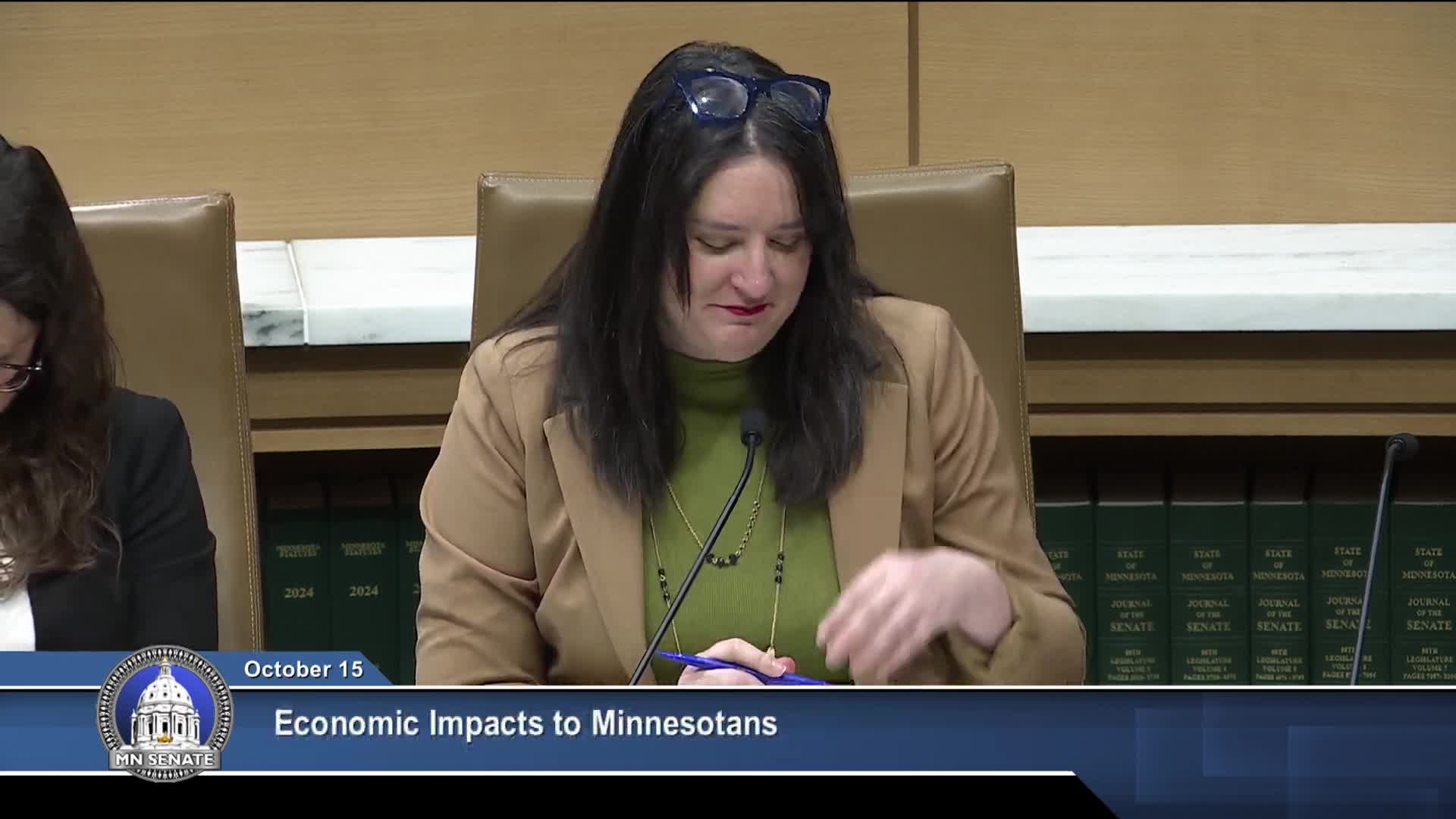Small-business owners, farmers and patients describe sharp tradeoffs as marketplace premiums rise and subsidies expire
Get AI-powered insights, summaries, and transcripts
Subscribe
Summary
AARP, Main Street Alliance members, small-business owners, farmers and several patients testified that rising premiums and the expiration of enhanced premium tax credits are driving painful choices between health coverage and basic needs, and could reduce workforce participation and entrepreneurship in some rural areas.
A broad cross section of Minnesotans testified to the subcommittee about how marketplace rate increases and the potential loss of enhanced premium tax credits — along with other federal changes — would affect households and small employers.
Thomas Salinas, associate state director of advocacy for AARP Minnesota, said older adults would be especially hard hit and urged lawmakers to make caregiving recognitions part of any state implementation of federal work and reporting requirements. He described a steep subsidy cliff for people above 400% of the federal poverty level and said MNsure’s examples show many older households could face five‑figure premium increases.
Sean Fedeplase, national campaigns director at the Main Street Alliance, testified on behalf of small business owners and sole proprietors. He said many of his members buy coverage in the individual market or rely on marketplace subsidies for staff, and that survey responses show business owners expect to curtail hiring or reduce benefits if costs rise.
Several small-business owners and individual Minnesotans gave personal accounts of immediate effects. Laura Myers, owner of a small brewery in Northfield, said two full-time employees’ family budgets would be strained by higher premiums; one employee could face an estimated $3,500 annual increase. Carol Koleseth, a Pennington County farmer, described a recent double mastectomy that — because she had secured marketplace coverage — left her with under $9,000 in out-of-pocket costs; her Blue Cross Blue Shield premium will rise from $1,603 to $1,972 a month, she told the committee.
Casey Gordon described living through a period without steady insurance earlier in her life, then using the ACA marketplace to stabilize her finances; she said a recent aggressive breast cancer diagnosis required rapid care planning and she worries about stability of coverage while she pursues treatment. Another testifier, Laura Crescent, a freelance web developer, said that between premiums and out-of-pocket costs she already spends about 20% of her post-tax income on care and that a 12–16% premium increase would force painful tradeoffs.
Alina Hornefeld, co-owner of a small health-food store on St. Clair Avenue in Saint Paul, said premiums above $1,000 already leave employees and owners vulnerable; rising premiums could push staff to turn down promotions or leave the sector.
No formal policy or vote resulted from the testimony. Legislators used the testimony to underscore urgency: many witnesses described choices between health care and rent, food and business investment, and told the subcommittee those choices would reduce consumer spending and could shrink local workforces.
